Recognizing the importance of mental wellness in education, the concept of mental health days has become increasingly relevant. It’s vital to understand why students should have mental health days, as these breaks can significantly contribute to their overall well-being and academic performance. In an era where academic and social pressures are constantly escalating, the concept of mental health days has emerged as a crucial tool for maintaining a balanced life. In this article, we delve into eight compelling reasons why students should be encouraged to take mental health days.
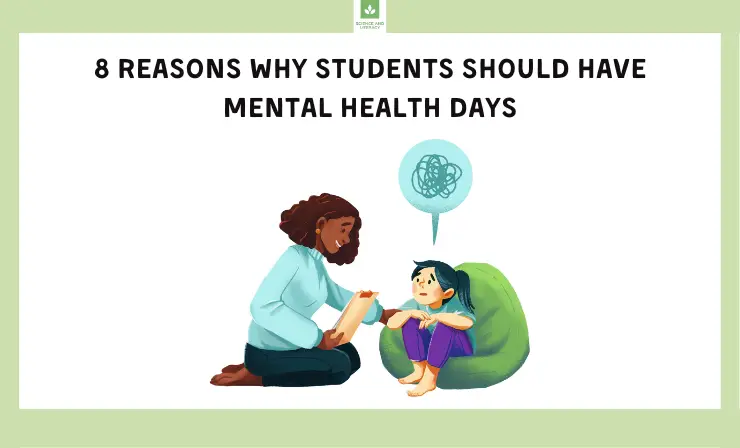
These days are not just a break from academic rigors but a necessary pause, offering students the opportunity to rejuvenate, reflect, and recalibrate. From reducing stress and preventing burnout to enhancing emotional intelligence and fostering a healthier school environment, mental health days are a testament to the understanding that mental well-being is as important as physical health. By exploring these reasons, we aim to underscore the importance of acknowledging and addressing mental health in educational settings, promoting a holistic approach to the development and success of students.
my mum used to give me two* mental health days every school term to use whenever i wanted, and i’ve gotta say, knowing i could wake up one day and say “i’m using my mental health day today” with no questions asked was such a good thing to have.
— queereotype ☻ (@thatqueerkiwi) February 20, 2022
After reading this article, you’ll know:
- What Are Mental Health Days →
- Teachers and Industry Experts’ Thoughts on Mental Health Days →
- 8 Reasons Why Students Should Have Mental Health Days →
- Tips for Guiding Mental Health Days →
- Effective Ways to Spend Mental Health Days →
What Are Mental Health Days
Mental health days, a concept increasingly acknowledged in educational settings, are designated days off from school aimed at supporting students’ mental and emotional well-being. These days are particularly pertinent given recent statistics: a study by the American Psychological Association found that 45% of teens reported feeling stressed by school pressures. Mental health days are set aside for students to rest, recharge, and manage stress or mental health concerns, which are more prevalent than often realized. The Centers for Disease Control and Prevention (CDC) reports that 1 in 5 American children aged 3 through 17 has a diagnosable mental, emotional, or behavioral disorder in a given year.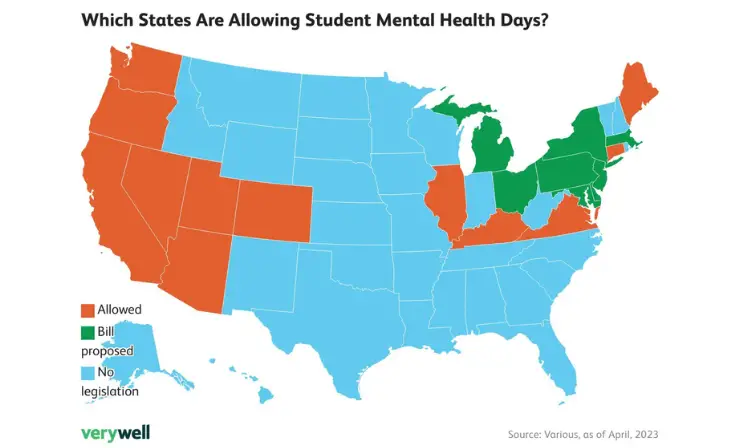
Unlike typical sick days, which focus on physical ailments, mental health days address psychological and emotional needs. This distinction is crucial in a world where the National Institute of Mental Health highlights that approximately 31.9% of adolescents have had an anxiety disorder. The implementation of mental health days is a response to growing evidence that students face complex challenges. The pandemic exacerbated these issues, with a study by the National Alliance on Mental Illness indicating that over 50% of students experienced increased anxiety during this period.
More than a day off, mental health days encourage self-reflection and self-care. They are instrumental in an environment where the CDC notes that the rate of children aged 6 to 17 diagnosed with anxiety grew by 1.5% from 2003 to 2012. These days also foster open discussions about mental health, reducing stigma in a demographic where, according to Mental Health America, over 10% of youth report suffering from severe depression.
Mental health days represent a significant step in addressing the mental health crisis among students, offering them much-needed respite in a high-pressure educational landscape. As schools evolve to meet these challenges, mental health days stand out as a crucial component of a holistic approach to student well-being.
Teachers and Industry Experts’ Thoughts on Mental Health Days
In the crucial discussion surrounding mental health days for students, the insights of educators and mental health professionals are incredibly significant. These individuals, who work closely with students, offer a unique perspective based on their direct experiences in educational and psychological settings.
Dive into the inspiring story of Hailey Hardcastle, a mental health advocate who successfully championed a law in Oregon allowing mental health days for students. Watch her enlightening TED Talk, ‘Why Students Should Have Mental Health Days,’ to understand the significance of this groundbreaking legislation.
Here are perspectives from various teachers regarding the implementation of mental health days for students:
“Mental health days are essential! It gives you time to reflect upon concerns you have with your class. It’s like putting yourself outside of the box and being able to look in to see what you haven’t had the time to see or understand. It allows you to return to school with fresh ideas and from a different perspective. Take the mental health day ….”
“Mental health problems do not discriminate. People of all ages, including school children and college students, can experience problems like stress, anxiety, and mood disorders. An important aspect of teaching is safeguarding students, and recognizing signs of mental health problems is a vital skill for keeping students safe.”
“I’m a big advocate for mental health days. This isn’t because you want to get an extension on a paper or miss a test — then it’s just a procrastination day. Mental health is health. Think of it like this: If you were exhausted and feeling sick, pushing yourself to keep going, to work or to school, would probably be a bad decision.”
8 Reasons Why Students Should Have Mental Health Days
Let’s explore the compelling reasons why students should have mental health days. Analyzing these arguments is crucial to understanding the broader impacts on students’ mental well-being and academic success. This discussion sheds light on the necessity of mental health days in nurturing a balanced and healthy educational environment.
1. Promotes Mental Wellness
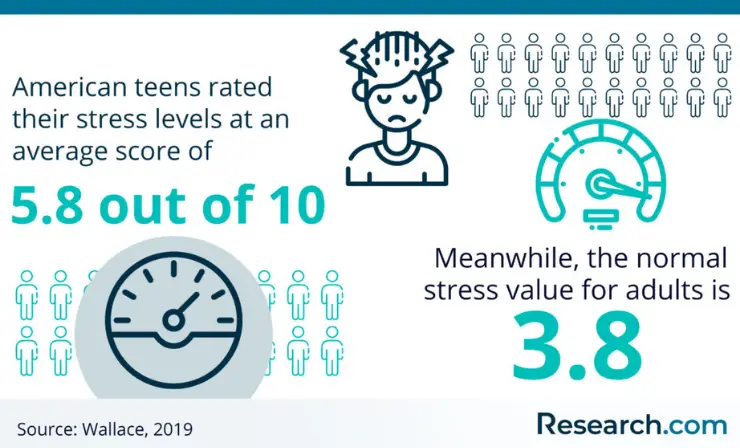
Promoting mental wellness is a pivotal reason for schools to integrate mental health days into their academic calendars. In our current educational climate, characterized by its fast pace and high pressure, students are increasingly facing a myriad of mental health challenges. These challenges, ranging from stress and anxiety to other psychological issues, can profoundly affect their learning and overall well-being. Mental health days provide a proactive strategy to address these concerns, reinforcing the importance of mental wellness as an integral component of student life.
In-depth research findings include:
- Stress and Anxiety Among Teens: The American Psychological Association has found that nearly 30% of teens are overwhelmed by stress and anxiety. This emotional burden can lead to decreased academic performance and a diminished enjoyment of school.
- Onset of Mental Health Conditions: The National Alliance on Mental Health emphasizes that half of all lifetime mental health conditions commence by age 14, underlining the critical nature of early intervention and support.
- Rising Prevalence of Depression: The Centers for Disease Control and Prevention (CDC) reports an increasing trend in the prevalence of depression among adolescents, highlighting a growing concern in youth mental health.
A mental health day is more than a simple hiatus from school responsibilities; it’s a vital opportunity for students to unwind, introspect, and partake in activities that promote emotional equilibrium and resilience. By offering mental health days, schools aid students in resetting their mental state, which can lead to enhanced focus, learning capabilities, and emotional regulation.
Ultimately, mental health days are more than a stopgap measure; they are an essential investment in the mental wellness of students. These days are a key step in fostering a generation that is academically capable and emotionally resilient. By championing mental wellness, schools play a significant role in developing well-rounded individuals ready to face future challenges.
2. Reduces Stigma
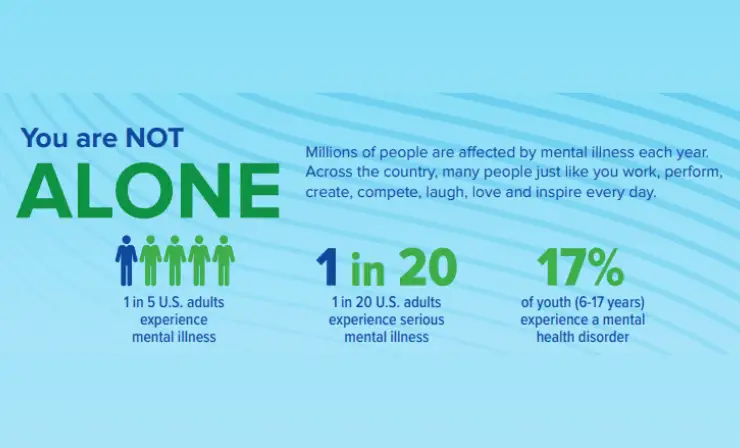
Reducing stigma around mental health is a fundamental reason for schools to embrace mental health days. The traditional view of mental health in educational environments has often been overshadowed by a focus on physical health and academic achievements. By formally recognizing mental health days, schools can play a pivotal role in changing the narrative around mental health, and encouraging openness and understanding among students, educators, and the broader school community.
Key research points include:
- Stigma in Youth Mental Health: Research indicates that the stigma associated with mental health issues can prevent students from seeking help. A report by the National Alliance on Mental Illness reveals that 1 in 5 teens lives with a mental health condition, yet stigma remains a significant barrier to accessing support.
- Early Intervention and Support: The importance of early intervention in mental health is underscored by findings that suggest early support can significantly alter the course of mental health issues in youth. Early intervention can lead to better long-term outcomes and reduce the impact of mental health conditions.
Integrating mental health days into the school calendar serves as a powerful statement against the stigma associated with mental health. It sends a clear message to students that their mental health is as important as their physical health and academic success. These days provide students with the space and legitimacy to prioritize their mental well-being without fear of judgment or misunderstanding.
In conclusion, mental health days are a crucial step towards reducing stigma in schools. They reinforce the message that mental health is a priority, encouraging a more inclusive and empathetic school environment. This shift is essential for nurturing a generation that is not only academically proficient but also mentally resilient and empathetic, equipped to support themselves and others in their mental health journeys.
3. Improves Academic Performance
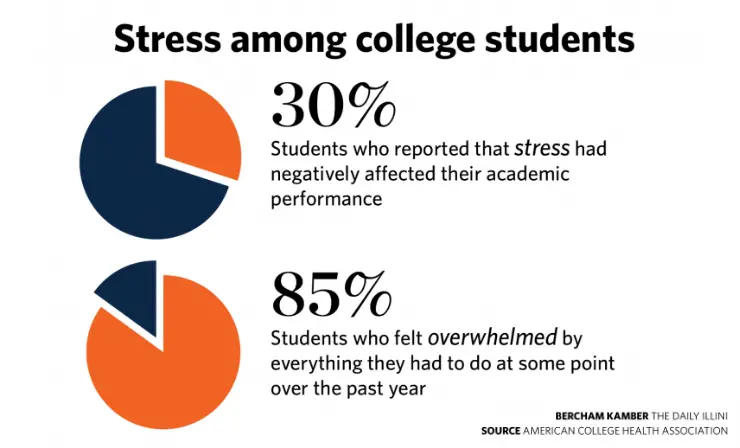
Improving academic performance is a compelling reason for schools to implement mental health days. The correlation between a student’s mental health and their academic achievements is increasingly evident in educational research. Mental well-being directly influences cognitive functions such as learning and memory, crucial for academic success. Mental health days provide students with necessary breaks to alleviate stress and return to their studies with renewed focus and energy.
Significant research insights include:
- Impact on Learning and Memory: Mental health has a significant effect on a student’s learning and memory capabilities. Studies have shown that students who are mentally well-rested and manage their stress effectively tend to have better academic outcomes.
- Homework and Academic Pressure: Research by the Teachers College Record points out that homework contributes to academic pressure and societal stress. This added pressure disproportionately affects students from varied socioeconomic backgrounds, exacerbating performance gaps.
- Stress and Cognitive Function: Psychological research suggests that high-stress levels can impair cognitive functions related to learning and memory. By reducing stress through mental health days, students can potentially improve these cognitive functions and, consequently, their academic performance.
Introducing mental health days can play a crucial role in alleviating the academic pressure that students face. These designated days allow students to step back from the constant demands of schoolwork, homework, and extracurricular activities, giving them a chance to recuperate mentally. Moreover, mental health days can help address the disparities in academic performance attributed to varying levels of stress among students from different backgrounds. By providing all students with opportunities to manage their mental health, schools can contribute to a more equitable educational environment.
In essence, mental health days are not just beneficial for students’ emotional well-being; they also have a direct and positive impact on their academic performance. By recognizing and addressing the mental health needs of students, schools can foster an environment where students are not only emotionally supported but also positioned to achieve their best academically. This approach leads to a more holistic form of education, where mental well-being and academic excellence are seen as interconnected and equally important.
4. Prevents Burnout
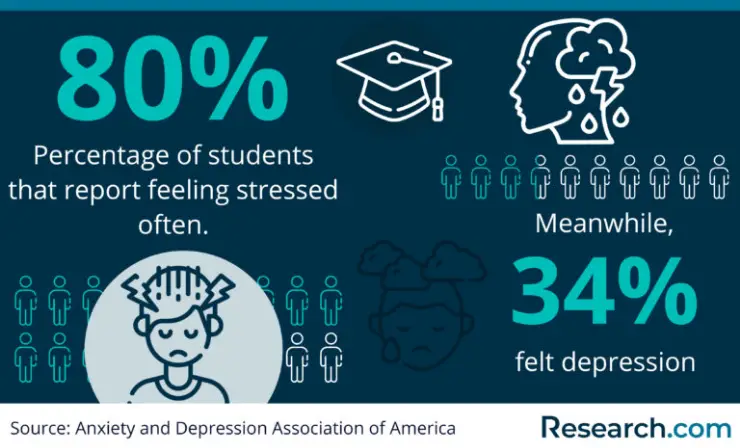
Preventing burnout is a crucial reason for incorporating mental health days into school calendars. In the high-pressure environment of modern education, students often face intense academic demands, extracurricular commitments, and social pressures, which can lead to burnout — a state of emotional, physical, and mental exhaustion caused by prolonged stress. Mental health days offer a necessary reprieve, helping students to disconnect, recuperate, and prevent the onset of burnout.
Essential research findings include:
- Definition and Impact of Burnout: Burnout among students is characterized by feelings of exhaustion, cynicism, and a sense of reduced accomplishment. Research notes that burnout can lead to decreased academic performance and a disconnection from school activities.
- Stress and Burnout in Adolescents: Research indicates that adolescents are particularly susceptible to burnout due to their developing coping mechanisms and the unique pressures they face. This vulnerability highlights the need for dedicated time to manage and mitigate stress.
- Effectiveness of Breaks in Preventing Burnout: Studies show that taking breaks, including mental health days, can be effective in preventing burnout. These breaks provide students with an opportunity to rest and engage in non-academic activities, contributing to their overall well-being.
Mental health days serve as an essential tool in a school’s strategy to combat student burnout. By officially recognizing and allocating days specifically for mental health, schools send a message that students’ well-being is a priority. These days encourage students to take a step back from their hectic schedules and focus on self-care, which is vital for maintaining their enthusiasm and engagement in school.
In summary, mental health days are a proactive measure against the growing issue of student burnout. They provide a structured opportunity for students to recharge, offering a balanced approach to education that considers both academic achievement and personal well-being. By prioritizing mental health in this way, schools can help nurture a healthier, more resilient student body, better equipped to handle the challenges of both school and life.
5. Teaches Self-Care and Responsibility
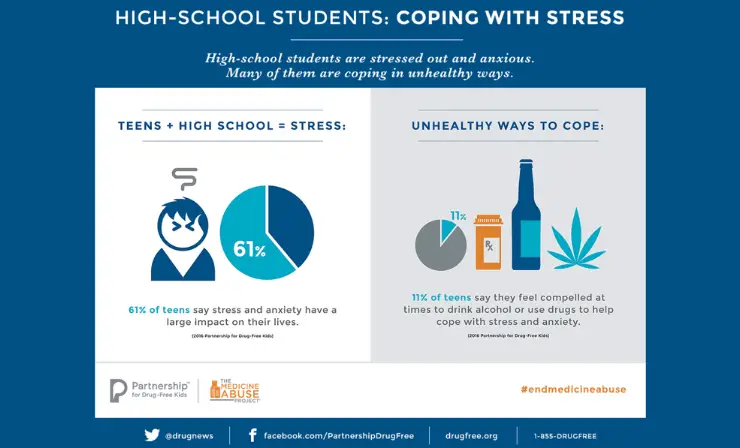
Teaching self-care and responsibility is a significant reason for schools to implement mental health days. These days provide more than just a break from academic pressures; they serve as practical lessons in self-care and personal responsibility toward mental health. By allowing mental health days, schools can help students understand and prioritize their mental and emotional needs, fostering skills that are vital for their lifelong well-being.
Crucial learning points include:
- Importance of Self-Care: Mental health days emphasize the significance of self-care, a concept crucial for maintaining mental and emotional well-being. They encourage students to take active steps in managing their stress and mental health.
- Responsibility Towards Mental Health: These days teach students to recognize and respond to their mental health needs responsibly. This empowerment is essential for developing healthy coping mechanisms and resilience.
- Preventing Avoidance and Developing Coping Skills: While it’s important to avoid using mental health days simply to escape challenges, with proper guidance, they can be an opportunity to develop positive coping strategies. Students can learn to identify stressors and address them in constructive ways.
- Promoting Intentional Self-Care Activities: Mental health days should be used meaningfully. Activities like mindfulness, exercise, or spending time in nature are not just leisure activities; they are therapeutic practices that contribute to mental health. Encouraging students to engage in such activities during their mental health days reinforces the concept of intentional self-care.
By incorporating mental health days into the school system, educators can help foster a generation of students who are not only academically adept but also skilled in managing their mental health. Such an approach ensures that students are equipped with the tools and knowledge to take care of themselves, leading to more balanced and fulfilling lives. In essence, mental health days are an investment in the holistic development of students, preparing them to navigate life’s challenges with resilience and self-awareness.
6. Encourages Professional Help Seeking
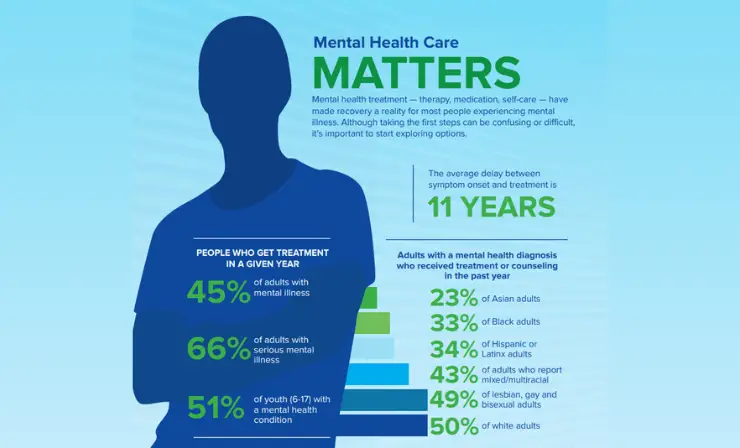
Encouraging professional help-seeking is an essential reason for schools to support mental health days. These days not only provide immediate relief from stress and anxiety but also play a crucial role in fostering a culture where seeking professional mental health support is normalized and encouraged. By legitimizing mental health concerns through sanctioned days off, schools can signal to students that it’s acceptable and important to seek help when needed.
Key considerations for this approach include:
- Normalizing Mental Health Support: Mental health days help in destigmatizing the act of seeking professional help for mental health issues. They create an environment where reaching out for assistance is seen as a strong and positive step rather than a weakness.
- Early Intervention Benefits: Encouraging students to seek professional help early can have significant benefits. The American Psychological Association emphasizes that early intervention in mental health issues can lead to better long-term outcomes and is often more effective.
- Awareness of Mental Health Resources: Mental health days can be an opportunity for schools to provide information about available mental health resources, such as counseling services or external mental health professionals. This awareness can be crucial for students who might not know where to turn for help.
Mental health days in schools serve as a reminder to students that mental health is a priority and that professional help is a valuable and accessible resource. These days can prompt students to reflect on their mental state and recognize when they might need additional support beyond what a day off can provide.
7. Creates a Supportive Environment
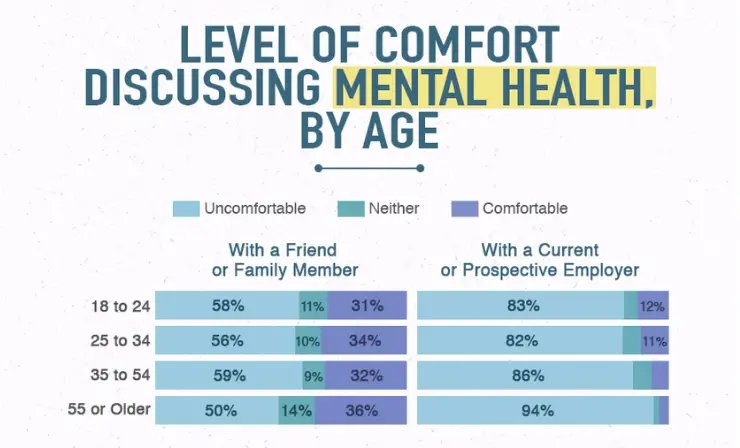
Creating a supportive environment is a key reason for schools to implement mental health days. These days go beyond providing a break; they foster a school culture that understands and responds to the mental health needs of students. By recognizing mental health days, schools demonstrate a commitment to the holistic well-being of their students, creating a more nurturing and empathetic educational atmosphere.
Important aspects to consider include:
- Fostering Empathy and Understanding: Mental health days encourage empathy and understanding among students and staff. They open up dialogues about mental health, helping to build a community where students feel supported and understood in their struggles.
- Reducing Stigma Around Mental Health: The American Psychological Association highlights the importance of destigmatizing mental health to improve student engagement and well-being. It shows that mental health is a priority and that seeking help or needing a break is a normal and acceptable part of life.
- Encouraging Peer Support: These days can also foster an environment where peers support each other’s mental health. Knowing that everyone values mental well-being can encourage students to look out for one another, creating a sense of community and shared responsibility.
Mental health days in schools are a powerful tool in creating a supportive environment. They signal to students that their mental health is important and that the school is a safe space to express and address their concerns. This approach goes a long way in making students feel valued and cared for, which is essential for their emotional and academic growth.
Moreover, mental health days can lead to better student-teacher relationships. When teachers recognize the importance of mental health, it can build trust and open lines of communication. This supportive environment is beneficial not just for students with diagnosed mental health conditions but for the entire school community.
8. Addresses Diverse Needs
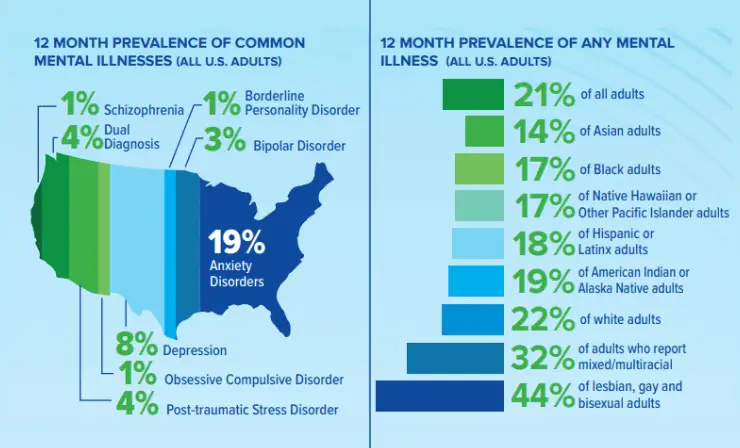
Addressing diverse needs is a vital reason for schools to incorporate mental health days into their schedules. Recognizing that every student is unique, these days acknowledge that mental health needs vary greatly among the student body. Mental health days offer a flexible approach that can be tailored to the individual needs of each student, ensuring that all students receive the support they require.
Key considerations include:
- Individual Differences in Mental Health: Students come from diverse backgrounds and have different experiences, leading to varied mental health needs. Mental health days recognize and respect these individual differences, providing a way to support students in a manner that is most effective for them.
- Inclusivity in Mental Health Support: By offering mental health days, schools create an inclusive environment that caters to the wide spectrum of mental health needs among students. This approach is essential in ensuring that all students feel seen and supported.
- Flexibility in Mental Health Care: Mental health days provide the flexibility needed to address a range of mental health issues. Whether a student is dealing with stress, anxiety, depression, or other mental health challenges, having the option to take a mental health day allows for personalized care and attention.
Mental health days in schools are an important step in addressing the diverse needs of students. They offer a supportive measure that recognizes the individuality of each student’s mental health journey. By allowing students to take time off for mental health reasons, schools demonstrate an understanding that mental well-being is not one-size-fits-all.
Tips for Guiding Mental Health Days
Understanding why students should have mental health days is just the beginning. Implementing these days effectively for children requires careful planning and clear guidelines. To ensure that mental health days are beneficial and not misused, here are some strategies on how to manage these days efficiently for kids:
1. Set Clear Limits

Establishing clear boundaries for mental health days is essential. To avoid overuse and ensure their effective application, set a specific allowance, such as two days each semester or up to five annually. This approach maintains the integrity and purpose of mental health days, making them a beneficial tool rather than a habitual escape. This careful allocation fosters responsible use and maximizes their positive impact on students’ mental well-being.
2. Plan Ahead
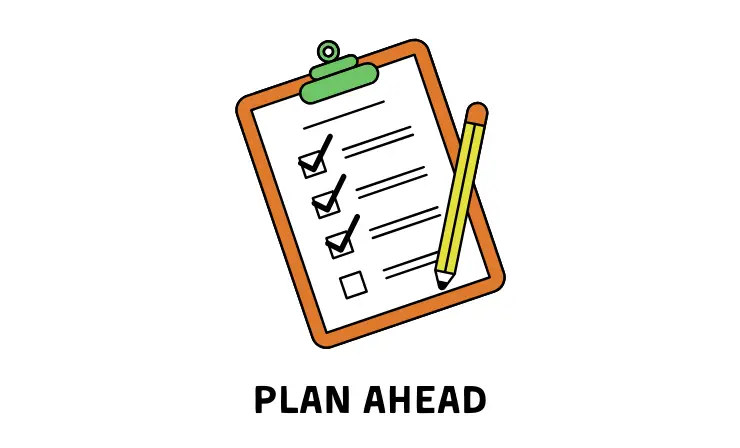
Planning mental health days with your child in advance, especially around key events or big projects, can be a proactive strategy to manage stress. For example, consider scheduling a day off following the completion of a significant assignment to allow time for relaxation and recovery. This foresight helps in mitigating stress accumulation, ensuring mental health days are used thoughtfully to rejuvenate rather than as a last-minute escape from overwhelming situations. Such collaborative planning underscores the importance of mental well-being while teaching valuable life skills in time management and self-care.
3. Offer Smaller Breaks

When a full day off is not necessary or practical, smaller breaks can be a useful alternative. Allowing your child to sleep in or granting them a half-day off can offer sufficient rest and relaxation without significantly interrupting their school routine. These shorter breaks provide a brief period of respite, aiding in stress relief and rejuvenation, and can be easily integrated into a busy schedule. This approach maintains a balance between academic commitments and mental well-being, ensuring that students receive the necessary rest without completely stepping away from their educational responsibilities.
4. When to Be Concerned
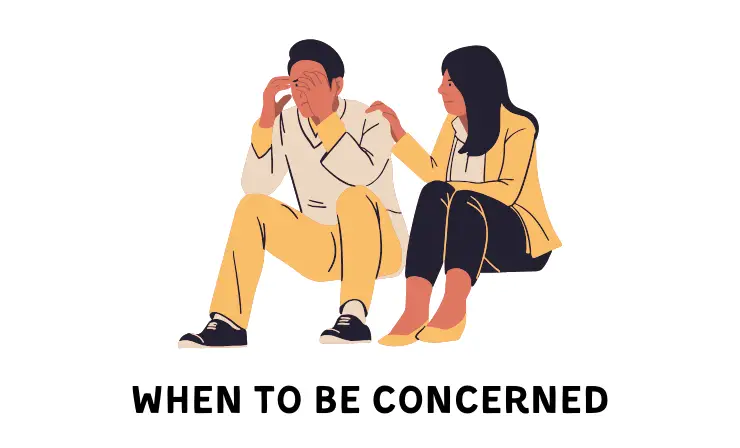
Mental health days are vital for temporary relief but don’t replace professional care. If your child often seeks days off, appears to be simulating illness or exhibits signs of serious issues like depression, professional consultation is necessary. Engaging with teachers, school counselors, or mental health experts is crucial for appropriate support and guidance. This step ensures that underlying issues are addressed with expert intervention, providing your child with the comprehensive care they need for their mental well-being. Remember, proactive professional involvement is key in effectively managing more profound mental health concerns.
How to Maximize the Benefit: Effective Ways to Spend Mental Health Days
There are numerous ways to make the most of a mental health day, and each person might find different activities beneficial. Here are some suggestions:
1. Mindfulness and Meditation
Practicing mindfulness or meditation can significantly center your thoughts and alleviate anxiety. These activities focus on being present and aware, helping to calm the mind. They can be a peaceful and grounding way to spend a mental health day.
Check out this quick 5-minute meditation guide in a video format for a brief, calming experience.
2. Rest and Relaxation
Sometimes the best way to recharge is by simply resting. This could involve sleeping in, leisurely reading a book or enjoying your favorite movie. Resting helps reset your mental state, making it a relaxing and restorative choice for a mental health day.
3. Creative Expression
Engaging in creative activities like drawing, painting, or writing offers a therapeutic outlet for emotions. It encourages self-expression and relaxation, making it a perfect activity for mental health days.
Explore the benefits of art therapy through this informative video guide.
4. Social Connection
Spending time with friends or family can uplift your spirits and foster a sense of belonging. Whether it’s a heartfelt conversation or just enjoying each other’s company, social interaction can positively impact your mental health.
5. Physical Activity
Exercise, such as yoga, biking, or a light workout, releases endorphins, boosting your mood and mental well-being. Physical activity is a healthy and invigorating way to spend a mental health day.
Revitalize yourself with this video featuring a quick workout to boost your mood.
6. Nature Therapy
Immersing yourself in nature, through activities like hiking or a park walk, can reduce stress and enhance your mood. The natural environment offers a tranquil setting for mental rejuvenation.
7. Digital Detox
Taking a break from screens and social media can significantly lower stress and improve sleep quality. A digital detox helps in focusing on the present and reduces the overload of digital stimulation.
Learn about the advantages of a digital detox from this insightful video.
8. Self-Care Rituals
Engaging in self-care practices like taking a long bath, following a skincare routine, or cooking a healthy meal can be deeply therapeutic. These activities promote relaxation and personal well-being.
To delve into the reasons why students might be better off without homework, be sure to read our comprehensive article on the topic.
9. Reflective Practices
Using the day for reflection through journaling or goal setting can provide clarity and perspective. Reflecting on your thoughts and feelings is a constructive way to address mental health and set positive intentions.
Discover how journaling can aid in managing anxiety and depression with this helpful video guide.
Explore the various arguments against school uniforms in our detailed article dedicated to this subject.
Useful Resources
- Student mental health
- Stress in College Students
- Frequency of depression, anxiety, and stress among university students
Conclusion
Incorporating mental health days into the school calendar is more than just a compassionate move; it’s a necessary one. These days provide vital breathing room for students to manage stress, reduce burnout, and foster overall well-being, all of which are crucial for academic success and personal development. It’s clear that for a healthier, more balanced future, mental health days are not just beneficial—they are essential.
For insights on managing test anxiety and improving your exam experience, explore our dedicated article on the subject.
References
- Stress in America
- Data and Statistics on Children’s Mental Health
- These Are the US States Allowing Student Mental Health Days
- Any Anxiety Disorder
- Mental Health By the Numbers
- Anxiety and depression in children: Get the facts
- The State Of Mental Health In America
- Carolyn Bourget
- Laura Hamilton
- 50 Current Student Stress Statistics: 2023 Data, Analysis & Predictions
- American Psychological Association Survey Shows Teen Stress Rivals That of Adults
- Mental Health Conditions
- MENTAL HEALTH STIGMA: STATISTICS AND DEFINITION.
- Prevention and early intervention in youth mental health: is it time for a multidisciplinary and trans-diagnostic model for care?
- The Truth About Homework Stress: What Parents & Students Need to Know
- Mental Health, Academic Self-Efficacy, and Study Progress Among College Students – The SHoT Study, Norway
- When school goes home: Some problems in the organization of homework.
- Influence of Stress and Emotions in the Learning Process: The Example of COVID-19 on University Students: A Narrative Review
- Psychological Distress, Burnout, and Academic Performance in First-Year College Students
- Adolescents’ Longitudinal School Engagement and Burnout Before and During COVID‐19—The Role of Socio‐Emotional Skills
- “Give me a break!” A systematic review and meta-analysis on the efficacy of micro-breaks for increasing well-being and performance
- Poor Stress Coping Skills
- THE IMPORTANCE OF SELF-CARE
- EARLY CHILDHOOD MENTAL HEALTH INTERVENTION
- The Stigma of Mental Illness
- Destigmatizing mental illness needs a national push, report says
- Family Background Issues as Predictors of Mental Health Problems for University Students
